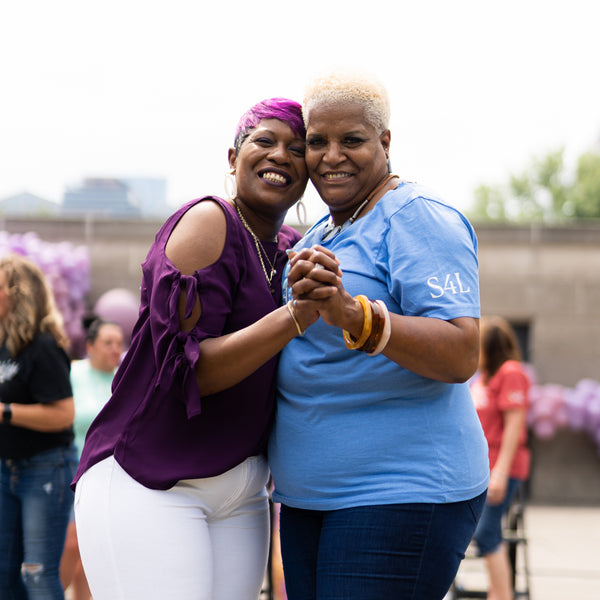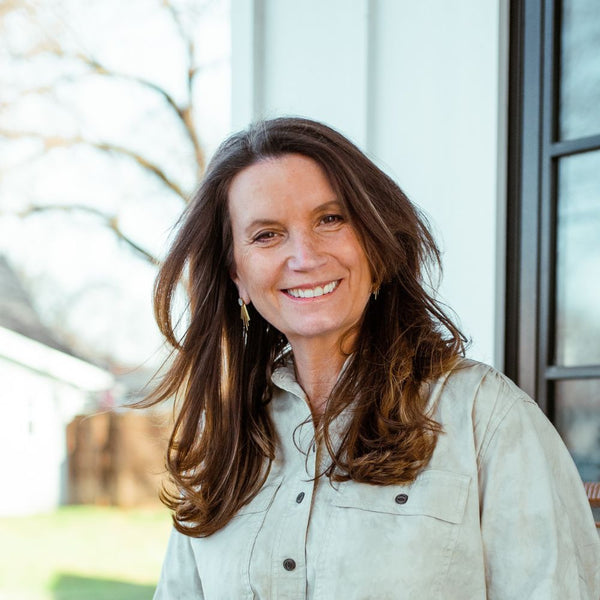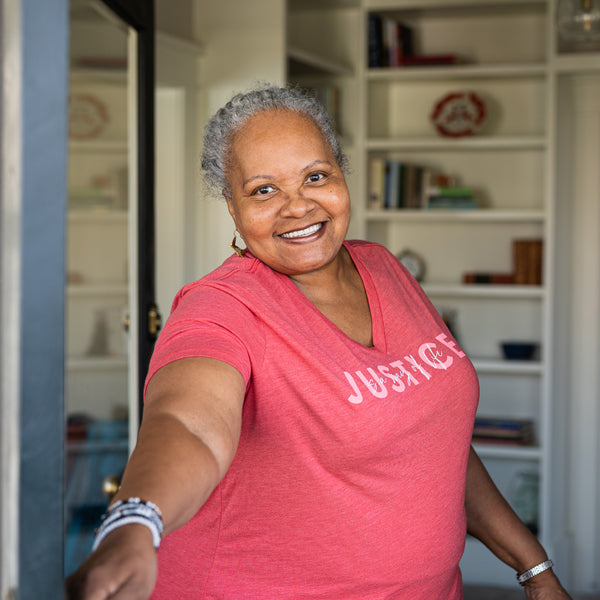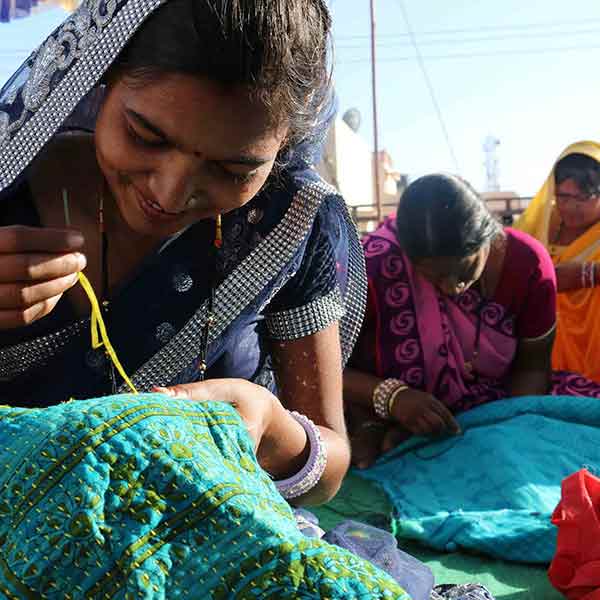The Woman Who Would Have Locked Up Eliot Spitzer
Dorchen Leidholdt is the most influential (and hardest-working) feminist you’ve never heard of. But that may be about to change.
I was sitting at my neighborhood hangout, Cafe Cluny, and Dorchen Leidholdt emailed me, full of apology, that she’d be 15 minutes late. “No problem,” I emailed back.
It was actually surprising that Ms. Leidholdt—the director of the Center of Battered Women’s Legal Services at Sanctuary for Families, the largest domestic violence organization in the state of New York—didn’t have to cancel; her devices are abuzz with 300 emails and texts a day, the majority of them SOS’s from endangered women or their social workers and advocates. I often describe her as the longest- and hardest-working feminist in New York City that you never heard of. Ms. Leidholdt and I met 20 years ago, when—as an author of two books about murdered wives (one of them Nicole Brown Simpson)—I was seated on the board of directors of Sanctuary (where I served for five years) and she came on as legal director after six years as a legal aid lawyer who specialized in defending desperate, exploited young women on charges of prostitution. (“Don’t say ‘prostitutes,’ ” she always firmly corrects—abhorring the personal noun that still peppers the New York penal code. “Prostitution”—an act, not a person, now much preferably called “being trafficked,” to show lack of volition—“is the only instance in which the identity of the defendant is conflated with the crime that he or she allegedly committed. You don`t see ‘robber’; you don’t see ‘murderer.’ But you see the gender-based term ‘prostitute’ in the penal code over and over again.”)
Back when we met, in 1994, Ms. Leidholdt was in charge of exactly one other lawyer. Today she oversees a legal team of 65—40 full-time attorneys and 25 paralegal associates. Over that span of years, Sanctuary—which has a medium-stay shelter for 58 battered women and their children that is exceedingly humane and pleasant—has branched out from merely rescuing, defending, counseling and supporting DV victims to serving women with immigration problems and those who are the victims of culturally specific crimes, such as female genital mutilation, forced child marriage, the threat of honor killing.
But the mission closest to Ms. Leidholdt’s heart is “changing the paradigm” on trafficking, so you nip it on the demand side of this annual $9.5 billion U.S. illicit industry. So the purchaser, the client—the dude in the hotel room on a business trip—becomes the potential criminal defendant, and the trafficked young woman (“She’s almost always young, impoverished and ‘exotic’: from a different background than the buyer; she doesn’t remind him of his wife or daughter”), hitherto always arrested, finally has a legal defense. Last winter, after three and a half years of work with her team (and with a major push from legislators like Rep. Amy Paulin of Westchester and Sen. Andrew Lanza of Staten Island), Ms. Leidholdt got New York to pass the hardest-hitting anti-trafficking law of any state. (Had the new law been in effect when then-Gov. Eliot Spitzer was apprehended for solicitation, his previously no-jail-time B misdemeanor—freshly bumped up to an A misdemeanor—might have given him a greater risk of being jailed. Not that Spitzer—“he certainly had friends…”—would have actually served time.)
And as you read this, Ms. Leidholdt is presenting the NYPD with a white paper, asking them to turn over a hunk of their admittedly scarce resources to proactively go after purchasers of trafficked girls and women through intensified stings, more female cops going undercover and canny use of the Internet. “And to do intensive training so the police will take this very, very seriously, will realize that trafficking is not so different from domestic violence and sexual assault”—a victim crime, in other words—“and officers will no longer harass women in prostitution, or, as often still happens, treat them as jokes. Can you imagine!” she continued, soon after she sails through Cluny’s door. “The largest police force in the country committing to changing the paradigm! It will motivate other departments to do the same.”
Ms. Leidholdt and I hadn’t seen each other face-to-face in about 15 years, so we do that you-haven’t-changed mutual-flattery thing that women old enough to remember late ’70s feminism do. But I for one am being truthful: Back when I’d see her at Sanctuary board meetings, her verbal style was always passionately political. She was model-thin with a swirly, neo-’40s-actress brunette mane, and she dressed in the Manolo-like heels and chic cocktail dresses… a visage that deliciously messed with the tired cliché of the feminist at the barricades.
“Can you imagine! The largest police force in the country committing to changing the paradigm! It will motivate other departments to do the same.”
She still has that look—which was convenient during her recent meeting with Amal Clooney (“She’s a class act; a really strong feminist and great human rights lawyer, great with people skills—and I got the feeling she doesn’t like living in a fishbowl,” Ms. Leidholdt said of the now-most-fawned-over woman in New York.) And it was convenient for her meeting with Chelsea Clinton (who was standing in for Mom). She hoped to get both Ms. Clooney and the just-declared Democratic presidential hopeful on board for Sanctuary’s media campaign, New York’s New Abolitionists: notable New Yorkers asserting that fighting sexual trafficking of young women is the 21st century version of the Underground Railroad. It’s a powerful analogy—that trafficked girls and women are enslaved; and those who both make money off them (pimps) and pay money for them (clients) are committing a legal and human rights crime. But, under Ms. Leidholdt’s and Sanctuary’s guidance, among those who’ve already been photographed for the campaign are Mike Bloomberg and Diana Taylor, Barry Diller and Diane von Furstenberg, Ray Kelly, Bill Bratton and Rikki Klieman, Seth Myers and his wife, Kings County ADA Alexi Ashe Myers, Eric Schneiderman, Chuck Schumer, Kirsten Gillibrand, Lee Daniels, Tina Fey, Cyrus Vance, Christie Brinkley, and Preet Bharara—not to mention a number of trafficking survivors, whose stories are as wrenching as their resolve to change the system is intense.
The statistics are compelling: According to a recent study in the Journal of Trauma Practice, between 70 and 95 percent of people in prostitution have been physically assaulted. The U.S. Department of Justice tells us that 12 to 14 is the average age of the girl recruited by a pimp; and, according to a study by the New York Women’s Foundation, on any given night in New York state, 4,000 under-age youths are victims of sex trafficking; the National Center for Missing and Exploited Children says 100,000 U.S. children have been trafficked.
But these are kind of preaching-to-the-choir statistics: infuriating and get-out-your-wallet-for-a-donation inciting, to be sure. More messy and controversial is the other issue: What about the term “sex worker,” which implies that some women are strong—and “sex-positive”—enough to choose this life, sometimes as a money-maker bridge gig while en route to a career? A few years ago, The New York Times did a cheerful piece on wholesome, self-named sex workers: one, a grad student, was interviewed holding her vegan delectables in the Whole Foods line. And what of the then-22-year-old suburban New Jersey woman, Ashley Dupre, over whom Spitzer had to resign the governorship in 2008? Ms. Dupre wrote an essay saying that she wasn’t very different from other young aspirational women who wanted the finer things in life, and she penned a regular dating advice column for the Post.
In yet another venue, a male-to-female transgender in Scandinavia (of course), happily married to a woman, proudly described her profession as a therapeutic “sex worker”—to help erotically inhibited clients. When I did an article, 10 years ago, on three women in prostitution who got each other out of it, the magazine (Glamour) and the Internet were ablaze with angry women proudly calling themselves “sex workers” who mocked my article as retro—even antifeminist. Not to mention the financially powerful porn film industry in Southern California, which has been intimidating the state with the threat of relocation if its prissy health codes get any more restrictive. What does Ms. Leidholdt, with her hard line, have to say about this fairly long prevailing P.C. view of prostitution—and porn—as a thing one can choose without harm?
First of all, regarding Ms. Dupre: Ms. Leidholdt suggested that her background may be revealing more trauma than was apparent. And she said she had a talk with the Times over “the harm in the term ‘sex worker,’ because it frames prostitution in a labor lens, not a gender-based violence lens.”
She also reminded that “the term comes from the sex industry itself. This Orwellian term—‘sex worker’—was an effort to normalize and legitimize prostitution as a job. It rendered the horror invisible. It came from an organization in the ’70s called COYOTE—Call Off Your Old Tired Ethics. Margo St. James was one of the founders. It was a group of libertarians, not feminists, who worked very closely with the San Francisco sex industry. It was a stroke of genius on their part to re-conceptualize prostitution in a way that eradicated any sense that it might be exploitive.” Ms. Leidholdt thinks it is always exploitive, and always hurtful to women. “Then, in Europe, it was really promoted, leading to the governments of the Netherlands and Germany deciding that brothel owners and pimps were legitimate businesses. It’s been a disaster, especially to the most vulnerable women.”
The idea that prostitution, even in the poorest countries, is elective is still alive in the U.S. media: Last year’s error-filled Newsweek article on Cambodian anti-trafficking heroine Somaly Mam forced Ms. Mam out of the foundation bearing her name. The poor reporting in the Newsweek piece was corrected by a research-based article on Ms. Mam by Abigail Pesta in Marie Claire, but the damage had already been done, and The Nation magazine, among others, took the anti-Mam line, freshly making the charge that female prostitution in Cambodia and elsewhere was not coerced but, rather, a pragmatic choice that do-gooders and people like Ms. Mam had damaged.
Ms. Leidholdt got religion as a young feminist by attending UVA in the mid-’70s. The university, ever problematic on women’s issues (some professors refused to teach women, or ordered them to wear skirts to class), had a hangout called The Minery, “named after the district in which Jack the Ripper prowled, and the entrees on the menu were named after the women Jack the Ripper eviscerated—all of whom were impoverished women in prostitution,” Ms. Leidholdt recalled, with a can-you-believe-it? look as we sipped our wines. She was reading Susan Brownmiller’s Against Our Will, which made the issue of rape a feminist cause, at the time, and was fuel to lead a protest to close down The Minery; later, when she moved to New York after graduation, she looked up Brownmiller, and became a “baby feminist” in the circle that included Brownmiller, Robin Morgan and Gloria Steinem.
Ms. Leidholdt is cheered by the re-upsurge of feminism now, taking myriad forms, and she is working with the dean of students at Columbia, where the case of Emma Sulkowicz has moved the spotlight of rape on campus from UVA to New York City (with only slightly less muddled results).
Does she think the white paper—received positively by “brilliant public intellectual and deputy commissioner of public policing Susan Herman”—will be well received by Police Commissioner Bill Bratton? Yes, she said. “The NYPD leadership is great,” and, back in 1994, when she first joined Sanctuary, Mr. Bratton—and Rudy Giuliani—came up with a landmark anti-domestic violence program, Get The Hitter Out of the Home. She’s optimistic in general. U.S. Attorney General Loretta Lynch just declared herself a New Abolitionist. What Ms. Leidholdt would like to see is something resembling former Nassau County D.A. Kathleen Rice’s Operation Flush Out The Johns, which, in spring 2013, netted arrests of 104 “respectable” men (lawyers, doctors, college professors) in six weeks, after complaints about prostitution in pricey hotels tipped police off. Civil liberties advocates, many progressives, even some feminists, might view such a project as a repressive pursuit of non-victims—or of the wrong victims.
And with those on-other-issues-likeminded naysayers, Dorchen Leidholdt—who believes that going right to the crucial “demand” side is how to keep vulnerable girls safe from being trafficked—would politely but very, very firmly disagree.
Sheila Weller is a journalist and author of the best-selling Girls Like Us, Marrying the Hangman, Raging Heart, Saint of Circumstance, the memoir Dancing at Ciro’s and most recently, The News Sorority.












